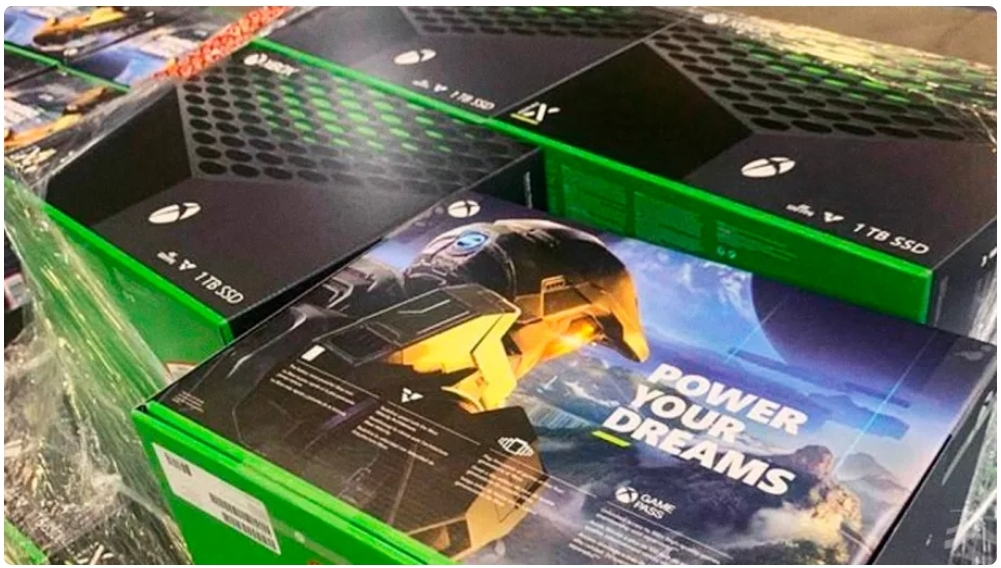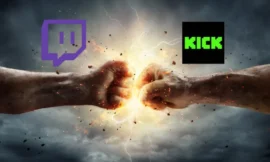Anyone who has tried to buy PS5, Xbox Series X or new graphics cards will have encountered the same situation: lack of stock, desperate sellers and other buyers fed up with this situation. But to this problem is added that of speculation in video games, with resales of consoles at astronomical prices. What leads us to pay so much knowing that this is not its official price?
The launch of new generation consoles has brought with it one of the recurring problems in the world of collecting, speculation in video games. Players who enjoy buying those nice editions that include exclusive merch and flashy boxes have already fallen victim to scalpers plenty of times. These are, to a greater or lesser extent, professionals who are dedicated to doing business with the purchase and resale of these products.
The truth is that there is an obvious common denominator between the current problem with speculation on next-generation consoles and collector’s editions, scarcity. This acts as an engine to force consumers to pay a lot of money above the original sale value of the product, in panic at the possibility of permanently losing the opportunity to get that desired item that has just arrived on the market.
Although in both situations scarcity is a determining factor for the problem, there is a key difference: in the case of collector’s editions or limited series, fear arises in the face of a market that has traditionally remained on the rise over the years and that has served for users to assume that the longer they take to buy a limited product, the more money it will cost them. This plays in favor of the speculator, together with the idea rooted in the consumer of, in the future, having the possibility of making the investment profitable in the event of a possible sale.
FOMO, fear of being left out
In the case of the new generation consoles, the anxiety generated after the impossibility of being able to get hold of one of them has nothing to do with the fear of losing forever the opportunity to buy them at the price at which we are seeing them on the market, any The buyer is aware that, in these cases, time plays in favor of the consumer and not the other way around, so is it a question of patience? The answer has to do with a phenomenon known as FOMO syndrome, for its acronym in English “fear of missing out”, the fear of missing something.

More than a decade ago, Hephzibah Anderson discussed FOMO in The Guardian as a feeling that begins with a pang of envy, followed by anxiety and a sense of helplessness, then finally fades, leaving deep irritation. Although the term was coined based on new technologies, the sentiment is not new. Our culture suggests to us that it is possible to have it all, while we watch others get those products we would so much like to have, attend those great parties or go on great trips. The reaction to the impossibility of living these experiences or owning these objects is magnified when the exhibition becomes massive thanks to the window that social networks represent.
Anxiety and nervous shopping

This serves to aggravate the situation because many of those we follow are enjoying their new game console while we can’t get our hands on one in stores. It is at this point that anxiety takes over and this gives rise to so-called ” nerve shopping “. This is something that unfortunately, we have all experienced during the global health crisis. The BBC analyzed in one of its articles how panic buying affected consumers during the pandemic. The justification for a serious problem entailed a dramatic response, even if it had to do with mundane situations.
Steven Taylor, professor and clinical psychologist at the University of British Columbia explained that when a product multiplies its price, it begins to be seen as a scarce product, which can generate anxiety. David Savage, Associate Professor of Behavioral and Microeconomics at the University of Newcastle in Australia, alludes to this fear of missing out as the root of much panic buying, explaining that if we realize later that we needed an item we didn’t buy, when we had the opportunity, we will feel bad. Herd mentality also plays a role in this behavior, leading to more people being drawn in for panic buying.
Although this phenomenon usually occurs in a very evident way in crises and with essential products, leading to the feared shortages in supermarkets and pharmacies, it is a phenomenon that we have seen applied to leisure products or even to chocolate bars.
We have very recently the case of Nestlé Jungly, a chocolate bar that stopped being manufactured in 2016 due to lack of reception and that its return was a true viral phenomenon that was forged on social networks and getting consumers to destroy all the tablets they found for sale, leading many establishments to limit purchases of tablets per person and Nestlé itself to make several statements on Twitter about the situation experienced.
The new generation of consoles unleashes speculation

The arrival of the new generation of consoles has been presented as the perfect storm for the proliferation of speculators who take advantage of panic buying and FOMO to add an extra cost that, on many occasions, doubles the price recommended by the manufacturer. It is clear that the main problem stems from the inability of manufacturers to meet demand, even taking into account speculation and panic buying, this is due to the well-known shortage of components , more specifically of semiconductors, which has been drowning the industry and with which we are still going to have to live for at least a year.
However, as companies try to find solutions to alleviate the situation and meet demand, speculation in video games are becoming more active than ever in a high-demand market where FOMO and panic buying can lead consumers to pay astronomical prices for have a console. Depending on the level of professionalization of the resellers, they can work with bots that prevent any possibility of purchase by consumers through automatic purchase programs.These are known in the United States as the ” Grinch bots ” in reference to the fictional character who came to ruin Christmas.
For years, a bill has been proposed to stop these massive purchases of products with the intention of speculating on them, and the situation after the pandemic has led several US politicians to seek to revive it. This project has had the support of the Consumer Federation of America and the National Consumers League, although to carry it out, they need the efforts of the stores.
How do stores stop speculators?

It is common for video game stores to actively fight speculation in video games. Part of the interest of the stores when it comes to selling a new generation console is to retain a new customer, someone who begins his adventures with the purchase in that store and in the future or even, together with the console, will buy others products. On the contrary, the speculator only seeks to take the scarce product and nothing else, to later do business with it, while the store’s customers feel frustrated at the impossibility of obtaining the product in their trusted store.
About this, in our website we talked with the popular online store about the problems of speculation and how they combated them, using different tools such as waiting lists with random assignment, in addition to taking measures to detect fraudulent registrations or the use of bots. We also recently learned that some stores in world had come to mark the boxes with the name of the buyer and the date of acquisition, in addition to disposing of the boxes of the controller that is included in the PS5 box.
Of course, this is not a problem that affects only the new generation consoles, any scarce product is susceptible to speculative bubbles. In video games and beyond intentionally limited products, we are also experiencing it with graphics cards, which suffer from the same shortage of components for their manufacture, with the added problem of the rise of cryptocurrencies and the very high demand for these for the process of mining.
But ultimately, consumers have the last word, how we deal with scarcity and the lack of that product that interests us. Emotional management in the face of the impossibility of purchasing and how we keep FOMO at bay. Would we be willing to pay several times the price of a new generation console if the shelves were full of them? If the answer is no, accepting the resellers’ conditions is a problem of emotional management and not of supply and demand.
Source:link

